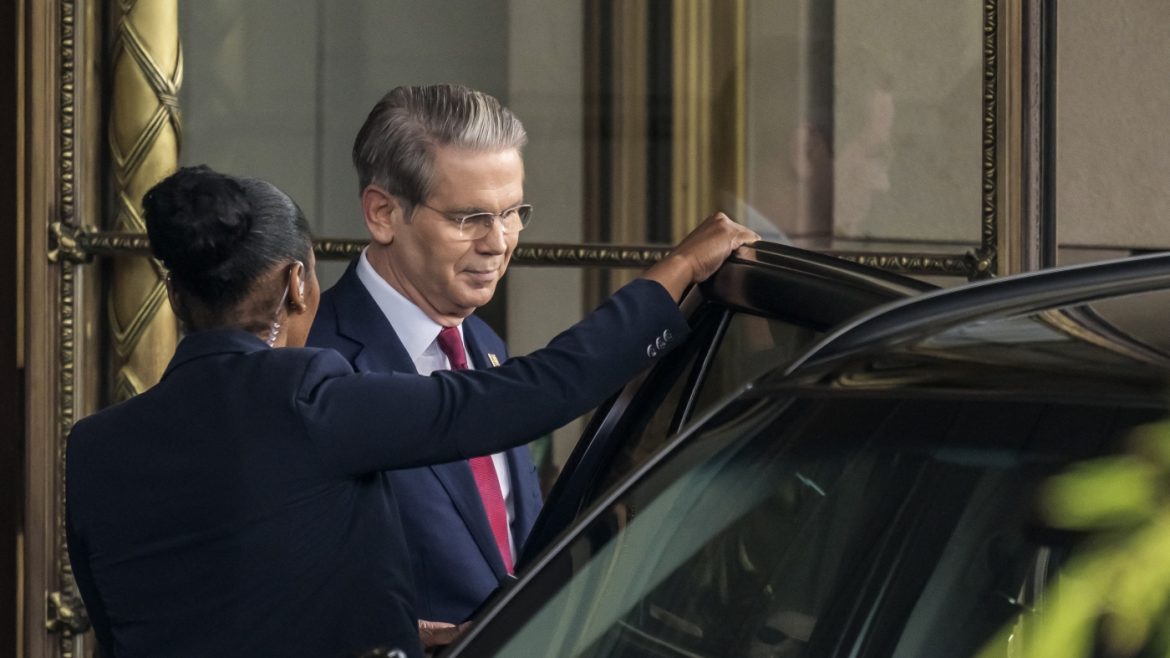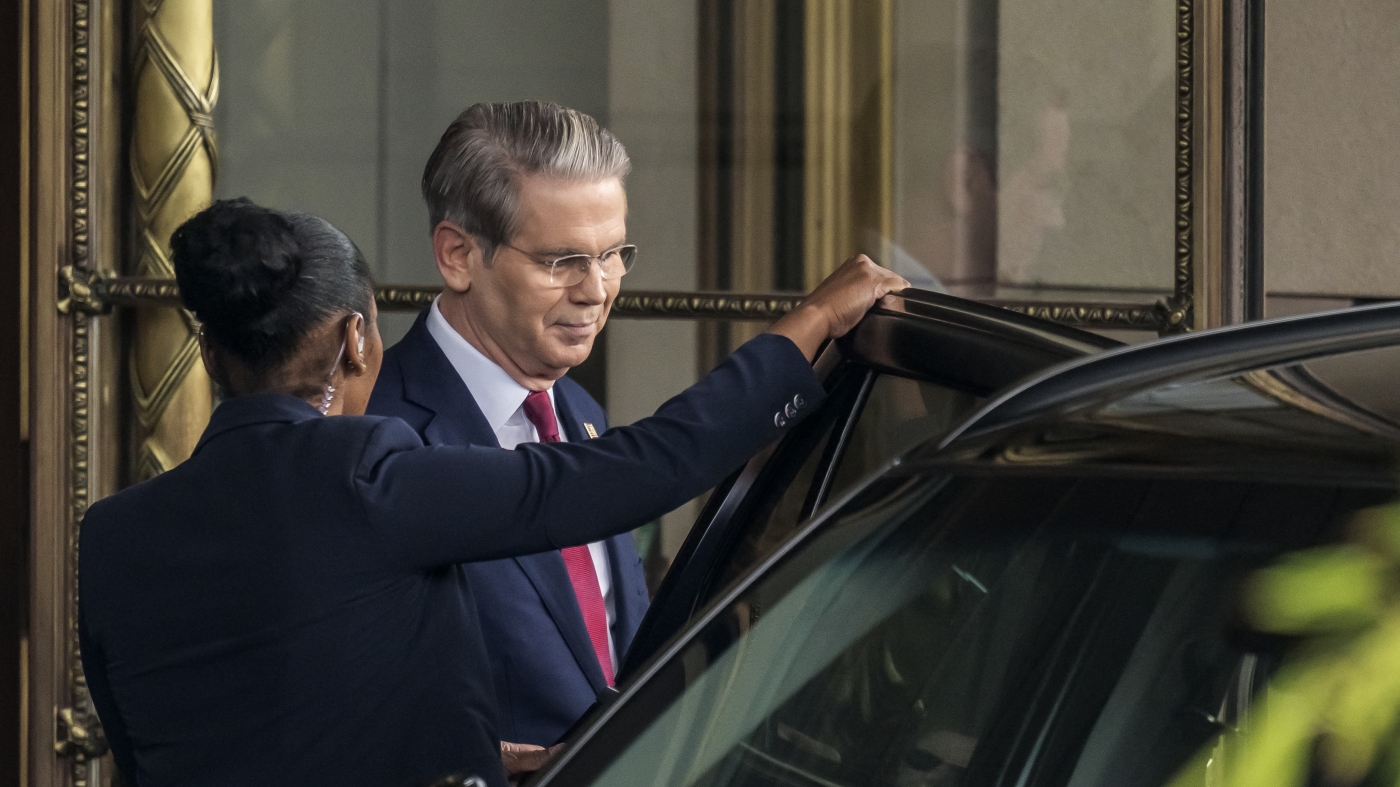Introduction
The geopolitical landscape is fraught with tension, and nowhere is this more evident than in the ongoing trade war between the United States and China. The recent initiation of talks between these two economic giants in Geneva marks a pivotal moment in this protracted conflict. These discussions, which began amidst heightened tensions due to President Trump’s tariff policies, hold the potential to either escalate or de-escalate the trade war. This report delves into the complexities of these talks, the underlying issues, and the potential outcomes that could shape global trade dynamics.
The Genesis of the Trade War
The trade war between the U.S. and China has been a contentious issue since its inception. President Trump’s administration has imposed significant tariffs on Chinese goods, citing unfair trade practices and intellectual property theft. These tariffs, which have ranged from 10% to as high as 145% on certain products, have had a profound impact on both economies. The U.S. has sought to protect its domestic industries, while China has retaliated with its own set of tariffs, leading to a cycle of escalation.
The Geneva Talks: A Glimmer of Hope
The high-level talks in Geneva represent a significant step towards resolving the trade dispute. These discussions, involving top officials from both countries, aim to find a middle ground that could potentially end the trade war. The choice of Geneva as the venue for these talks is strategic, given its historical significance as a neutral ground for international diplomacy. The talks are seen as a potential thaw in the ongoing trade war, with both sides expressing a willingness to engage in dialogue.
Key Issues on the Table
Several critical issues are expected to be discussed during these talks. These include:
– Tariff Reduction: Both countries are likely to negotiate the reduction or removal of existing tariffs. The U.S. has proposed significant tariff increases, including an 80% tariff on Chinese goods, which could be a point of contention.
– Intellectual Property Protection: The U.S. has long accused China of intellectual property theft, and this issue is expected to be a major focus of the negotiations.
– Market Access: Both countries are likely to discuss market access for their respective goods and services, aiming to create a more equitable trading environment.
– Currency Manipulation: The U.S. has accused China of manipulating its currency to gain an unfair advantage in trade. This issue is expected to be addressed during the talks.
Potential Outcomes
The outcomes of these talks could vary widely, ranging from a complete resolution of the trade war to a further escalation of tensions. Some potential scenarios include:
– Partial Agreement: Both countries could reach a partial agreement, reducing some tariffs and addressing specific issues while leaving others unresolved.
– Full Resolution: A full resolution would involve the complete removal of tariffs and a comprehensive agreement on all contentious issues. This outcome, while optimistic, is considered less likely given the current state of tensions.
– Escalation: If the talks fail, the trade war could escalate further, with both countries imposing additional tariffs and other trade barriers.
– Stalemate: The talks could result in a stalemate, with no significant progress made and the status quo remaining unchanged.
The Impact on Global Trade
The trade war between the U.S. and China has had far-reaching implications for global trade. The imposition of tariffs has disrupted supply chains, increased costs for consumers, and created uncertainty in global markets. The outcome of the Geneva talks could have a significant impact on these dynamics. A resolution or even a partial agreement could stabilize global trade and reduce uncertainty, while a further escalation could exacerbate these issues.
The Role of Other Countries
The trade war between the U.S. and China has also affected other countries, particularly those in Europe. The backlash in Europe, prompted by the shifting perception of the U.S. amidst the trade war, has led to a pivot away from U.S. goods and services. This has created new challenges for European economies, which are now grappling with the fallout of the trade dispute. The outcome of the Geneva talks could also have significant implications for these countries, potentially influencing their trade policies and economic strategies.
Conclusion: A Crucial Juncture
The trade talks between the U.S. and China in Geneva represent a crucial juncture in the ongoing trade war. The outcome of these discussions could shape the future of global trade and have far-reaching implications for economies worldwide. As the two largest economies in the world engage in dialogue, the hope is that a resolution or at least a de-escalation of tensions can be achieved. The stakes are high, and the world watches with bated breath as these talks unfold. The potential for a trade war ceasefire, rather than a full peace, highlights the complexity and sensitivity of the issues at hand.


